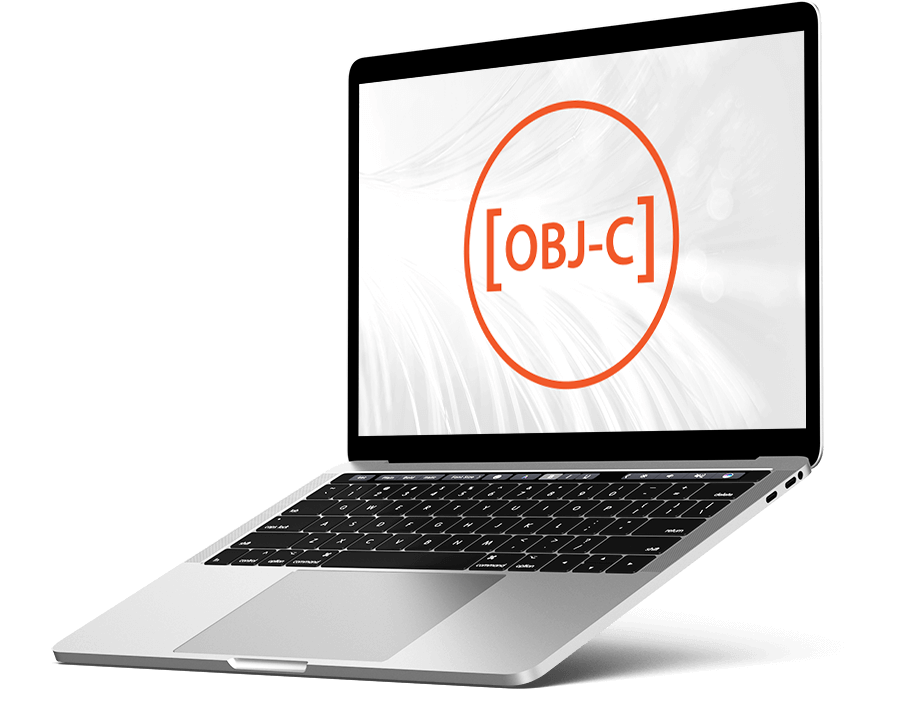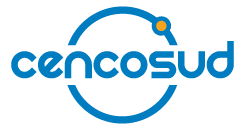
★ ★ ★ ★ ★ 4.9 Client Rated
TRUSTED BY THE WORLD’S MOST ICONIC COMPANIES.
★ ★ ★ ★ ★ 4.9 Client Rated

We create high-quality, custom iOS applications and OS X software tailored to each client's specific needs. From initial consultation through testing and post-launch support, our developers guide you through every step of the iOS development process, ensuring a solution that meets your expectations and drives results.
Our Objective-C app development services deliver applications that run seamlessly on iPhone, iPad, and Mac devices. Our skilled developers build dynamic and user-friendly apps that cater to businesses of all sizes, providing reliable performance and intuitive user experiences across Apple devices.
We develop secure and robust enterprise-level iOS applications that support the unique needs of your business. Our team builds industry-specific apps designed to enhance internal operations, improve productivity, and facilitate multi-user access within enterprise environments.
If you need to migrate your existing Objective-C codebase to Swift or another platform, we ensure a smooth and efficient transition. Our developers handle all aspects of the migration process, modernizing your applications while maintaining functionality and performance.
Our dedicated QA specialists conduct thorough testing to verify that your iOS software is secure, reliable, and optimized for a positive user experience. We ensure your application meets the highest standards of quality before deployment, minimizing risk and enhancing usability.
Our maintenance and support services ensure your Objective-C applications continue to run at peak performance. We provide updates, troubleshoot issues, and monitor system health over time, keeping your software stable and up-to-date as your business evolves.

FedEx needed to undergo a technological upgrade to streamline its operations. This involved implementing advanced logistics management systems for real-time tracking and monitoring of shipments. Additionally, data analytics and predictive modeling were utilized to optimize routing strategies and enhance decision-making.

Our task was to enhance the performance of their existing mobile banking application while concurrently elevating the quality of the underlying codebase. This dual objective required a comprehensive approach to the application’s functionality and the intricacies of its code structure.

The project involved the complete reconstruction of two supermarket e-commerce brands from the ground up, with a primary focus on enhancing the user experience while integrating state-of-the-art technologies across web and mobile platforms.

Oanda faced a critical need to enhance their Forex Trade application, requiring specialized Java development resources with expertise in Java Swing to drive forward both ongoing development and essential maintenance. Oanda sought a partner who could seamlessly blend technical prowess with a deep understanding of regulatory compliance and agile methodologies.

Banco Patagonia and Banco do Brasil approached us with the need to develop a native mobile banking app for Android and iOS, specifically for Banco Patagonia’s corporate segment. The goal was to ensure robust and secure access for business clients on both major mobile platforms.

Swiss Medical Group set out to revolutionize their affiliate app by integrating agile development and advanced technology. The aim was to modernize the app, address outdated systems, and create a unified, intuitive experience across all devices. This project sought to enhance design, boost performance, and streamline operations to deliver a seamless user experience.

Banco Hipotecario needed to enhance user experience and security for its authentication and authorization processes without disrupting its business operations. The goal was to implement a solution that ensures robust security while maintaining a seamless user experience on its mobile apps and web portal.

Banco Patagonia recognized the need to transform its customer support infrastructure to meet the evolving expectations of its customers. They wanted a seamless solution to integrate the PADI chatbot across multiple platforms and channels, ensuring a consistent and practical user experience. To address this, they aimed to develop a Minimum Viable Product (MVP) featuring three key components: a human chat interface, a hybrid chat system, and an intelligent chatbot.
Smooth. Swift. Simple.

We are eager to learn about your business objectives, understand your tech requirements, and specific Objective-C needs.

We can assemble your team of experienced, timezone aligned, expert Objective-C developers within 7 days.

Our Objective-C developers can quickly onboard, integrate with your team, and add value from the first moment.
Objective-C is a powerful, object-oriented programming language developed as an extension of the C language, primarily used for building applications on Apple platforms like iOS and macOS. Originally created in the 1980s and later adopted by Apple, Objective-C combines the flexibility of C with added object-oriented features, allowing for more modular, reusable, and maintainable code. Known for its robust runtime capabilities, Objective-C supports dynamic typing and message passing, making it uniquely adaptable and efficient for creating complex, responsive applications.
A key strength of Objective-C is its deep integration with Apple’s Cocoa and Cocoa Touch frameworks, which enables developers to leverage a rich ecosystem of APIs for building highly functional and polished applications. Objective-C also supports backward compatibility with older iOS and macOS versions, making it an excellent choice for long-term projects or applications requiring stable support across multiple Apple device generations.
Despite the rise of Swift, Objective-C remains a preferred choice for many enterprise applications due to its stability, maturity, and large library of pre-built functions. Its compatibility with C and C++ also allows developers to seamlessly integrate legacy code, making Objective-C a reliable, versatile language for high-performance app development on Apple platforms.

Objective-C is a mature, proven programming language that remains a strong choice for developing applications on Apple platforms. Its compatibility with C and C++ libraries, as well as Apple’s Cocoa and Cocoa Touch frameworks, provides a flexible foundation for building high-performance, stable applications. One of Objective-C’s major advantages is its seamless integration with older iOS and macOS versions, allowing developers to maintain and update legacy applications without the need for extensive rewrites, which is particularly valuable for enterprises with long-standing applications.
Objective-C’s rich runtime capabilities enable dynamic typing and message passing, making it highly adaptable and allowing for sophisticated customizations that are critical for complex applications. Additionally, Objective-C offers straightforward access to private APIs, providing developers with a broader range of functionalities to create tailored, feature-rich solutions without heavy reliance on external resources.
For projects that prioritize stability, backward compatibility, and access to a robust library ecosystem, Objective-C remains a reliable choice. Its extensive set of built-in functions and time-tested performance make it ideal for long-term projects, enterprise applications, and any app requiring a high level of consistency and compatibility across Apple’s device ecosystem. Even as Swift gains popularity, Objective-C’s durability and established role in Apple’s development landscape ensure its ongoing relevance and value for modern applications.

Objective-C is highly compatible with C and C++ libraries as well as the latest Xcode versions, allowing developers to maintain, update, and integrate apps with minimal effort. This compatibility simplifies the process of extending and updating applications, reducing both development time and resource usage.
Objective-C offers a comprehensive collection of function-rich libraries, providing numerous built-in features that streamline development. These libraries accelerate the coding process, enabling developers to build robust applications more efficiently.
Objective-C makes it easier to connect with private APIs, making it an excellent choice for projects that require custom solutions. This ease of integration minimizes the need for extensive internal resources, allowing developers to build specialized functionalities quickly and effectively.
As a mature language with a well-established ecosystem, Objective-C is known for its stability. Its long-standing presence in iOS and macOS development provides a reliable foundation for building stable applications, reducing the risk of errors and minimizing ongoing maintenance needs.
Unlike newer languages like Swift, Objective-C supports older versions of iOS and macOS. This backward compatibility allows developers to create applications that run smoothly on a wider range of Apple devices, making it a versatile choice for projects targeting broader audiences.
Objective-C is a foundational language for developing applications on iOS and macOS. It provides seamless access to Apple’s native frameworks, like Cocoa and Cocoa Touch, making it ideal for building high-performance, feature-rich applications across Apple’s ecosystem.
Many large enterprises rely on Objective-C for their legacy systems. It allows companies to maintain, update, and scale existing apps without needing a full rewrite, ensuring long-term support and stability for mission-critical applications.
Objective-C facilitates easy access to private APIs, which is valuable for creating highly customized solutions. This access allows developers to leverage device-specific functionalities beyond what’s available in public APIs, offering unique features in their applications.
Objective-C’s compatibility with older iOS and macOS versions makes it an excellent choice for applications that need to run on a range of devices, including those using legacy operating systems. This backward compatibility helps developers reach a wider audience without sacrificing functionality.
Objective-C integrates seamlessly with C and C++ libraries, enabling developers to use legacy codebases or libraries within an iOS or macOS app. This compatibility is beneficial for projects requiring high-performance components or specialized functionality developed in other languages.
Known for its maturity and stability, Objective-C is well-suited for long-term projects that demand consistent performance and reliability. It’s a preferred choice for applications requiring a stable environment with minimal changes over time, such as healthcare, finance, and other heavily regulated sectors.
Tools designed to streamline the development lifecycle for Objective-C, improving workflows for building, testing, and managing applications.
Essential tools for versioning, collaboration, and project management in Objective-C development:
Frameworks and design tools that assist in building and refining user interfaces for Objective-C applications, enhancing the overall user experience:
Platforms for robust testing and quality assurance of Objective-C applications, ensuring performance and reliability across devices:
Objective-C, a language with over three decades of use, is mature, stable, and widely trusted for long-term projects. Its extensive runtime and compatibility with legacy systems make it a strong choice for enterprise applications and complex apps that need reliable performance across Apple devices. In contrast, Swift, introduced in 2014, is relatively newer but has rapidly evolved and stabilized. Swift’s frequent updates incorporate modern features, but these changes can sometimes impact older codebases, making Objective-C a more stable choice for projects requiring long-term consistency.
Swift’s syntax is modern, concise, and designed for readability. It reduces code complexity by eliminating certain legacy patterns found in Objective-C, which makes Swift easier to learn and write, especially for developers new to Apple’s ecosystem. Objective-C, while more verbose, provides extensive flexibility and power, especially in projects where complex messaging and dynamic typing are needed.
Both Objective-C and Swift offer strong performance, but Swift often has a slight edge due to its optimized compilation and runtime. Swift was designed with performance in mind, and its statically typed nature allows for faster code execution. However, Objective-C’s robust runtime enables powerful dynamic capabilities, making it ideal for certain advanced use cases that require runtime flexibility.
Objective-C is fully compatible with older iOS and macOS versions, making it an excellent choice for apps that need to support a wide range of Apple devices, including legacy systems. Swift, while backward-compatible, is optimized for newer versions of iOS and macOS, making it less suited for applications that need to run on older OS versions.
Objective-C allows easier access to private APIs, which can be essential for apps that require custom functionalities beyond public APIs. This flexibility is beneficial for projects that need deeper integration with device-specific features. Swift, however, is more limited in its ability to access private APIs, reflecting Apple’s focus on Swift as a more secure language for developers.
Swift’s simplicity can reduce development time, and its growing community provides a wealth of resources and support. Swift is often preferred for projects that need quick iteration, prototyping, or integration with new Apple features. Objective-C, on the other hand, is ideal for projects with established codebases or applications that require in-depth maintenance, as it integrates smoothly with legacy code and C/C++ libraries, facilitating updates and ongoing development.
We build high-performance software engineering teams better than everyone else.
Coderio specializes in Objective-C technology, delivering scalable and secure solutions for businesses of all sizes. Our skilled Objective-C developers have extensive experience in building modern applications, integrating complex systems, and migrating legacy platforms. We stay up to date with the latest Objective-C advancements to ensure your project is a success.
We have a dedicated team of Objective-C developers with deep expertise in creating custom, scalable applications across a range of industries. Our team is experienced in both backend and frontend development, enabling us to build solutions that are not only functional but also visually appealing and user-friendly.
No matter what you want to build with Objective-C, our tailored services provide the expertise to elevate your projects. We customize our approach to meet your needs, ensuring better collaboration and a higher-quality final product.
Our engineering practices were forged in the highest standards of our many Fortune 500 clients.
We can assemble your Objective-C development team within 7 days from the 10k pre-vetted engineers in our community. Our experienced, on-demand, ready talent will significantly accelerate your time to value.
We are big enough to solve your problems but small enough to really care for your success.
Our Guilds and Chapters ensure a shared knowledge base and systemic cross-pollination of ideas amongst all our engineers. Beyond their specific expertise, the knowledge and experience of the whole engineering team is always available to any individual developer.
We believe in transparency and close collaboration with our clients. From the initial planning stages through development and deployment, we keep you informed at every step. Your feedback is always welcome, and we ensure that the final product meets your specific business needs.
Beyond the specific software developers working on your project, our COO, CTO, Subject Matter Expert, and the Service Delivery Manager will also actively participate in adding expertise, oversight, ingenuity, and value.
Accelerate your software development with our on-demand nearshore engineering teams.